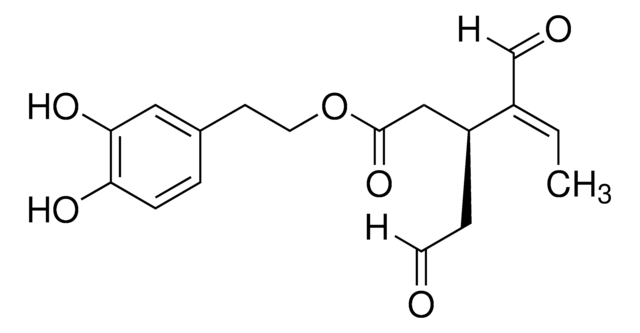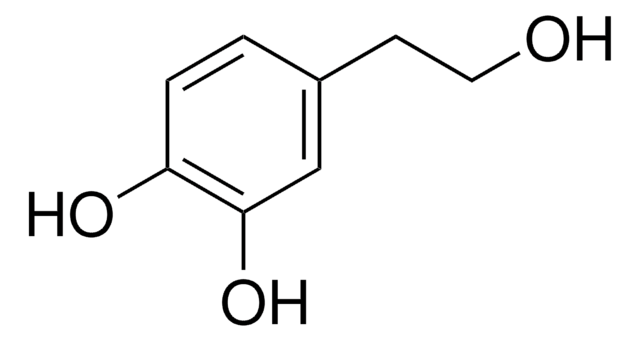SMB00810
Oleocanthal
from Olea europaea
Synonym(s):
(-)-Oleocanthal
About This Item
Recommended Products
biological source
Olea europaea
Assay
≥95%
form
film
mol wt
304.34
solubility
DMSO: 1 mg/mL, clear, colorless
application(s)
metabolomics
vitamins, nutraceuticals, and natural products
shipped in
dry ice
storage temp.
−20°C
InChI
1S/C17H20O5/c1-2-14(12-19)15(7-9-18)11-17(21)22-10-8-13-3-5-16(20)6-4-13/h2-6,9,12,15,20H,7-8,10-11H2,1H3/b14-2-/t15-/m0/s1
InChI key
VPOVFCBNUOUZGG-VAKDEWRISA-N
Looking for similar products? Visit Product Comparison Guide
Related Categories
General description
Application
Biochem/physiol Actions
Features and Benefits
- High quality compound suitable for multiple research applications
- Compatible with HPLC and mass spectrometry techniques
Other Notes
Storage Class Code
10 - Combustible liquids
WGK
WGK 3
Flash Point(F)
Not applicable
Flash Point(C)
Not applicable
Certificates of Analysis (COA)
Search for Certificates of Analysis (COA) by entering the products Lot/Batch Number. Lot and Batch Numbers can be found on a product’s label following the words ‘Lot’ or ‘Batch’.
Already Own This Product?
Find documentation for the products that you have recently purchased in the Document Library.
Customers Also Viewed
Our team of scientists has experience in all areas of research including Life Science, Material Science, Chemical Synthesis, Chromatography, Analytical and many others.
Contact Technical Service









